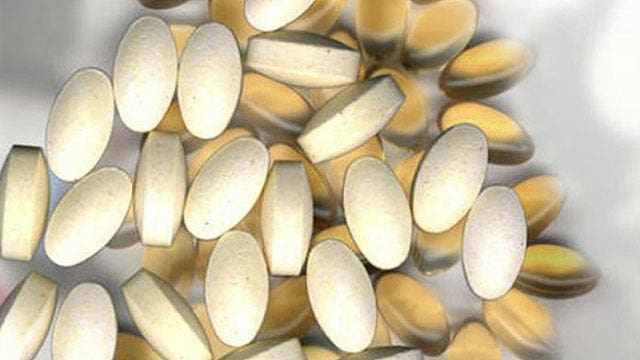Fox News Flash top headlines for February 15
Fox News Flash top headlines are here. Check out what's clicking on Foxnews.com.
People who have a vitamin D deficiency are more likely to have a severe or fatal case of COVID-19, researchers said.
In a retrospective study published in the journal PLOS ONE, scientists from Galilee Medical Center and Bar Ilan University in Israel examined the records of more than 1,176 patients admitted between April 7, 2020, and Feb. 4, 2021, to the Nahariya-based Galilee Medical Center with positive PCR (polymerase chain reaction) tests for SAR-CoV-2. Those records were searched for vitamin D levels measured two weeks to two years prior to infection.
VITAMIN D DEFIENCY LINKED TO MORTALITY RISK IN SOME PEOPLE, RESEARCHERS SAY
The individuals were categorized according to vitamin D levels – marked as deficient, insufficient, adequate and high-normal – and COVID-19 disease severity, which was determined utilizing a multivariable regression analysis.
More than 250 patients had records of vitamin D levels prior to COVID-19 infection, and the team found that patients with vitamin D deficiency were 14 times more likely to have a severe or critical case of COVID-19.

A woman walks on the beach (Credit: iStock)
Mortality among patients with sufficient vitamin D levels was 2.3%, compared with 25.6% in the deficient group.
"A lower vitamin D status was more common in patients with the severe or critical disease than in individuals with mild or moderate disease," the study concluded.
When adjusted for age, gender, season and history of chronic diseases, the differences still applied.
According to Bar Ilan University, the study is among the first to analyze vitamin D levels prior to infection and the infections build upon results initially published on MedRxiv.
WAYS TO GET MORE VITAMIN D IN YOUR DIET
"Our results suggest that it is advisable to maintain normal levels of vitamin D. This will be beneficial to those who contract the virus," study leader Dr. Amiel Dror, of the Galilee Medical Center and Azrieli Faculty of Medicine of Bar-Ilan University, said in a statement. "There is a clear consensus for vitamin D supplementation on a regular basis as advised by local health authorities as well as global health organizations."
"This study contributes to a continually evolving body of evidence suggesting that a patient's history of vitamin D deficiency is a predictive risk factor associated with poorer COVID-19 clinical disease course and mortality," study co-author Prof. Michael Edelstein, of the Azrieli Faculty of Medicine of Bar-Ilan University, said. "It is still unclear why certain individuals suffer severe consequences of COVID-19 infection while others don’t. Our finding adds a new dimension to solving this puzzle."
Notably, the study is based on research conducted before coronavirus vaccines were widely available, and the doctors stressed to The Times of Israel that vitamin supplements are not a substitute for vaccines, but a way to aid immunity levels.
Dror told the publication that while the study was also conducted before the omicron variant's surge, the coronavirus doesn't change fundamentally enough between variants to negate vitamin D effectiveness.
CLICK HERE TO GET THE FOX NEWS APP
The Times also noted that health officials in several countries have recommended vitamin D supplements during the pandemic.
According to the Cleveland Clinic, vitamin D helps to keep bones strong, absorb calcium and work with the parathyroid glands. Symptoms of deficiency include fatigue, bone loss, mood changes, muscle cramps and bone and joint pain. Negative health effects of deficiency include heart disease, high blood pressure, diabetes, immune system disorders, multiple sclerosis, falls in older people and some types of cancer.


